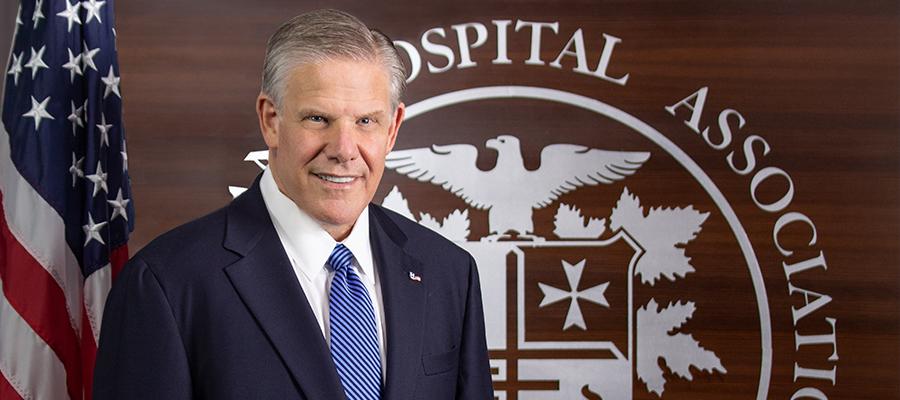Perspective: Protecting patients from surprise billing requires the right prescription

Surprise medical billing has no place in health care … full stop.
“Advancing Health in America” includes making health care more affordable, and America’s hospitals and health systems are committed to protecting patients from unanticipated medical bills they may incur because of gaps in their insurance coverage or as a result of emergencies.
That’s why — at the beginning of this year — the AHA Board of Trustees launched a task force to draft principles for addressing surprise medical billing. Their focus: protecting patients from surprise bills, ensuring access to emergency care and preserving the role of private negotiations between providers and health plans … just to name a few. We’ve shared these guiding principles with policymakers, and each time Congress has released a new plan, we’ve made sure legislators know where we stand on it.
The good news: President Trump and Congress want to tackle this issue.
The bad news: So far, none of the proposals have hit the mark.
Take the so-called “compromise plan” that was announced over the weekend. While we have not seen the text yet, we know it is in no way a true compromise and contains unworkable provisions from earlier pieces of legislation, including a benchmark rate that would jeopardize patient access to hospital care, particularly in rural communities. Setting in law an arbitrary rate for care gives insurers an incentive to remove hospitals from their networks and force artificially low reimbursement rates, which serves to limit access and gives a huge windfall to commercial insurance companies. This plan also includes extraneous, unrelated and unworkable proposals such as those that would impede provider and health plan contracting.
This is hardly the right way to address surprise billing. Even worse: The bill’s sponsors are hoping to rush this bill into law by attaching it to end-of-year government funding bills without taking the time to get this policy right.
We urge Congress to get this right, and not rush a solution to surprise medical bills that would cause disruption to patients and the hospitals and health systems that care for them.
For example: Just two days ago, the chairman and ranking member of the House Ways and Means Committee put forth a bipartisan plan that would take steps toward a solution, and we look forward to working with the Committee in the New Year as it addresses this important issue.
In the meantime, it’s critical that you tell your senators and representative to end surprise billing once and for all in a deliberative way that protects patients and ensures access to care. Thanks for your partnership on this important issue.

